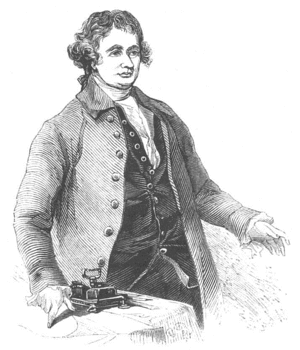The liberal theory of natural rights undoubtedly forms the very foundation of our modern western society, dominating everything from the organization of government to the movements of labor and goods within our economic system. Such is the pervasiveness of the theory that to most it seems almost innate and automatic in its validity, requiring no further study and inquiry than a quick read of the constitution and bill of rights. Yet there exist certain historical patterns and circumstances that made it possible for those rights to exist. If it were the case as liberal theory suggests that the rights contained within the constitution are universal and rational to all human beings, then every country on earth would have with its own impulse developed similar styles of government and society. We see however especially at the time of the enlightenment that throughout the world societies are arranged according to their own particular histories and culture.
According to the liberal theory of rights as outlined by writers such as Locke, human society in the state of nature is a collection of rational self interested beings. They have unlimited rights in this state as a result of their humanity, rights over themselves and their property. Those rational beings in order to protect themselves from other beings seeking to maximize their power allow themselves to be governed by an independent authority. If one takes this idea as universal and inherent, then all governments must be limited, and by extension all cultures and societies should be organized in the same way to maximize everyones individual rights and happiness. The core of this theory lies in two ideas; first that all humans are rational, and second that all humans have the same rights. Well for the latter it is clear that throughout history this has not been expressed universally or even considered true by most people. As was the case in France before the revolution, the different social classes accepted their position and the limitation of rights that came with them-“In your old states you possessed that variety of parts corresponding with the various descriptions of which your community was happily composed” .
For Burke the rights enjoyed by the British people for example are not derived from universality but rather from a long standing set of practices that were handed down to people over time. –“the minds of all our lawyers and legislators, and of all the people whom they wish to influence, have been always filled; and the stationary policy of this kingdom in considering their most sacred rights and franchises as an inheritance.” . So we see that people do not simply rationalize and then exercise rights, but rather presume certain rights and responsibilities based on the culture in which they live. Its more a matter of custom and familiarity than an individual discourse. In addition they often have a strong connection to those prescribed rights and it gives them a certain place in society and a responsibility toward the past. -“People will not look forward to posterity, who never look backward to their ancestors”. To sever that bond in order simply to extol the virtue of universal rights will eventually cause more harm than good because people will loose any real commitment to the community as a whole, their passions and needs will override their sense of duty. -wholly to separate and tear asunder the bands of their subordinate community, and to dissolve it into an unsocial, uncivil, unconnected chaos of elementary principles.
For Burke the idea of society being simply a collection of individual self interested beings is a gross over simplification that may exist in some abstract, but fails wholeheartedly to address the random and ever changing dealings of a real community. Further, taking those abstract concepts and then applying them to governance without careful consideration to past and precedent sets that government on a course toward ineptitude and failure. –“The nature of man is intricate; the objects of society are of the greatest possible complexity; and therefore no simple disposition or direction of power can be suitable either to man’s nature, or to the quality of his affairs.” Government and its leaders must be guided not by abstracts but by prudence, making judgments based on the current situation and with caution not to disrupt the larger community. This is a challenge that is not easily met, and cannot fall prey to easy and all encompassing ideologies. That is perhaps the biggest critique someone like Burke would make of the liberal theory of rights. To make large sweeping declarations about humanity, and then to try and fit everything within that box leads one not to enlightenment and purpose but rather to blind, destructive fanaticism.- “it is better that the whole should be imperfectly and anomalously answered, than that, while some parts are provided for with great exactness, others might be totally neglected, or perhaps materially injured, by the overcare of a favourite member. ”
Quotes from Further Reflections on the French Revolution -1797 Edmund Burke

